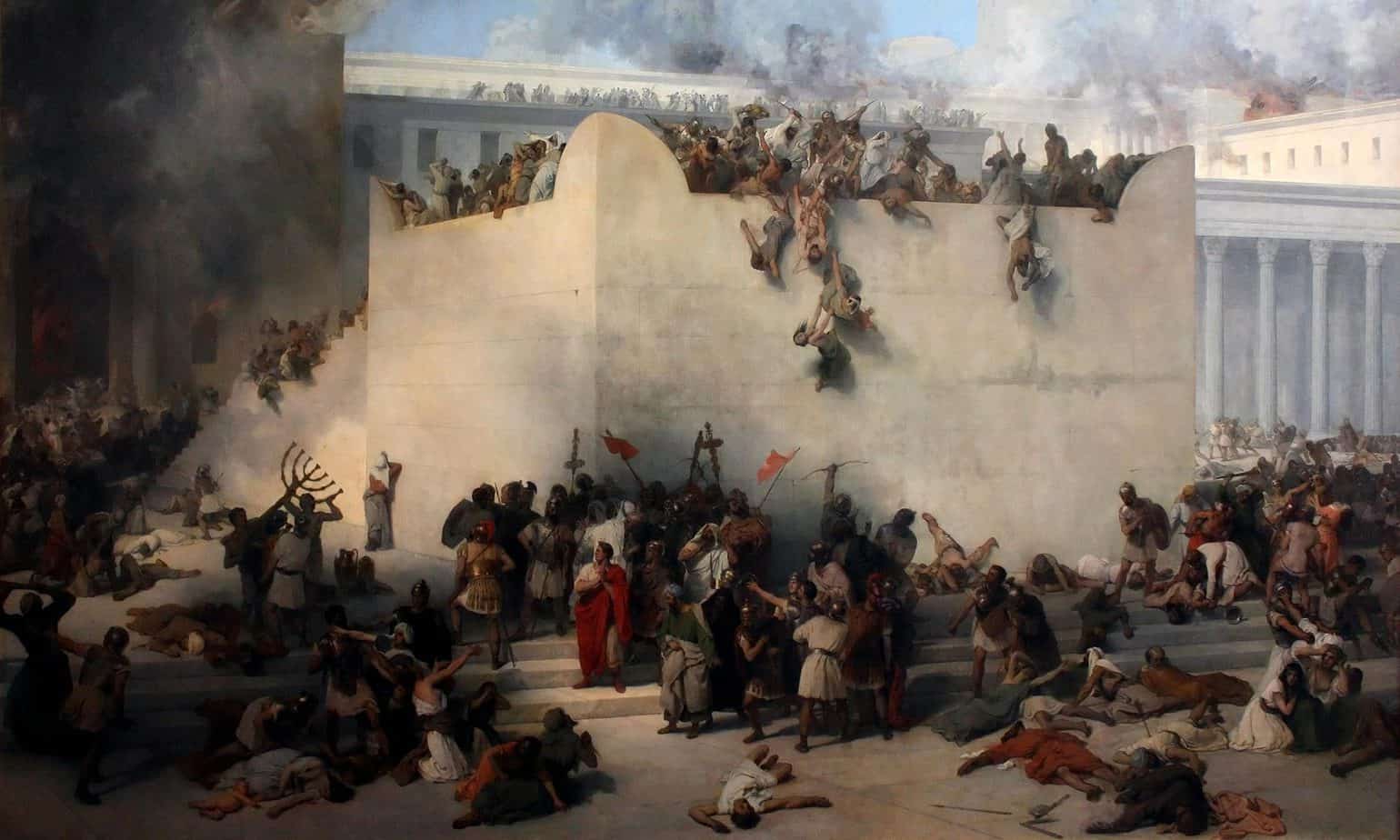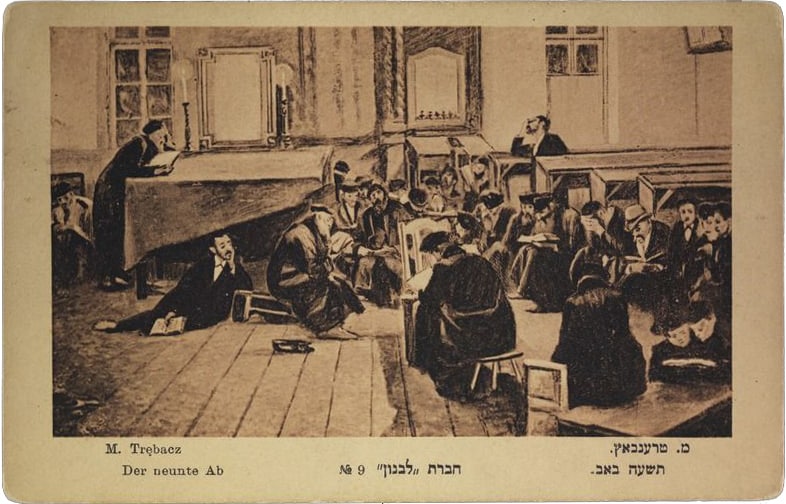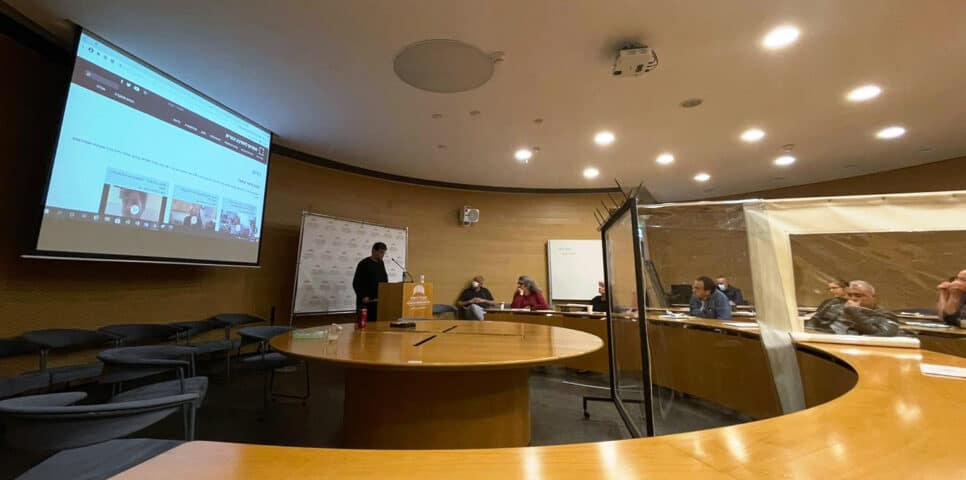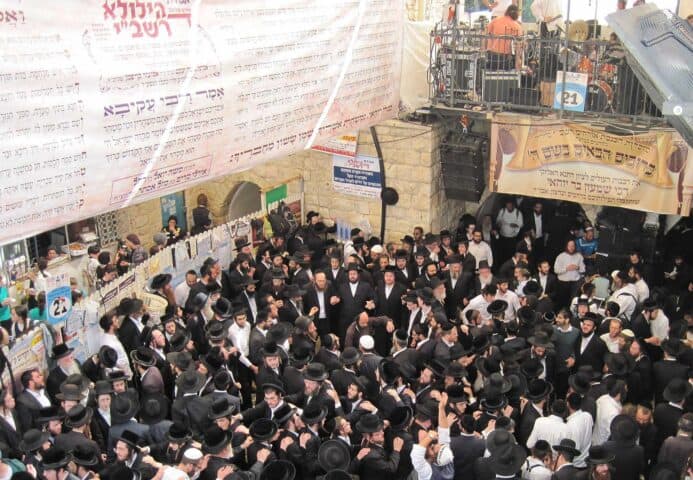Opinion: Is there anything new under the sun? Ask Agrippa
Dr. Dafna Schreiber | 18.07.2021 | Photo: Destruction of the Temple of Jerusalem, Francesco Hayez, 1867

Thoughts about Tisha B'Av
Does it make sense to continue to mourn over the “ruined and desolate city,” as it says in the prayers for the night of Tisha B’Av, in light of the rebuilt Jerusalem, and to fast over the destruction and exile, in an era of political sovereignty in the Land of Israel? The answer seems to be positive. We must continue to mark the destruction of Jerusalem in order to remember and remind others what zealotry can lead to, as Dr. Dafna Schreiber writes.
 According to tradition, the Second Temple was destroyed because of senseless hatred. But a less known cause was zealotry, of which we can learn from the Talmudic legends of the destruction about Kamtza and Bar Kamtza (see the story in the Talmud Bavli, Gittin, 55B–56A).
According to tradition, the Second Temple was destroyed because of senseless hatred. But a less known cause was zealotry, of which we can learn from the Talmudic legends of the destruction about Kamtza and Bar Kamtza (see the story in the Talmud Bavli, Gittin, 55B–56A).
The story tells of a rich man in Jerusalem who made a large feast, to which he invited sages. As the result of a mistaken identity, he invited Bar Kamsa, whom he hated, instead of Kamsa, who was his friend. Bar Kamsa was chased out of the feast in shame, and none of the sages sitting around the table protested the humiliation of the guest to the host. Bar Kamsa decided to take revenge: he told the Emperor that the Jews were revolting against him. He advised the Emperor to send them a calf as a sacrifice, and his proof of their revolt would be in their refusal to accept the gift. Bar Kamtza received the calf for delivery and mutilated it, knowing that by doing so it would be disqualified as a sacrifice. Nonetheless, because of the principle of “welfare of the government” (a rule that allows easing up on the Halacha in order to honor the government), the sages considered sacrificing the Emperor's sacrifice anyway.
But then, according to the Talmud, Rabbi Zecharia ben Avkulas prevented them from making the sacrifice, so that others would not learn from them that it was permitted to sacrifice blemished animals. The story in the Gemara ends with the words: “Rabbi Yochanan declared: The humility of Rabbi Zecharia ben Avkulas caused the destruction of our home, the burning of our Temple, and the exile of our people” (Bavli, Gittin, 56A). In other words, Rabbi Yochanan ironically and euphemistically called Avkulas’s uncompromising zealousness and strictness a humility that led to the destruction.

King Agrippa II also spoke out against zealousness. In an emotional but thoughtful speech, the king, who although appointed by the Romans was accepted by large parts of the Jewish people, tried to prevent the revolt:
Had I perceived that you were all zealously disposed to go to war with the Romans, and that the purer and more sincere part of the people did not propose to live in peace, I had not come out to you, nor been so bold as to give you counsel; for all discourses that tend to persuade men to do what they ought to do are superfluous, when the hearers are agreed to do the contrary. But because some are earnest to go to war because they are young, and without experience of the miseries it brings […] others hope to get by it, and are therefore earnestly bent upon it, that in the confusion of your affairs they may gain what belongs to those that are too weak to resist them, I have thought proper to get you all together, and to say to you what I think to be for your advantage […] Will you not carefully reflect upon the Roman empire? Will you not estimate your own weakness? […]Now all men that go to war do it either as depending on Divine or on human assistance; but since your going to war will cut off both those assistances, those that are for going to war choose evident destruction […] Nay, indeed, the danger concerns not those Jews that dwell here only, but those of them which dwell in other cities also; for there is no people upon the habitable earth which have not some portion of you among them, whom your enemies will slay, in case you go to war, and on that account also; and so every city which hath Jews in it will be filled with slaughter for the sake of a few men […] I call to witness your sanctuary, and the holy angels of God, and this country common to us all, that I have not kept back any thing that is for your preservation; and if you will follow that advice which you ought to do, you will have that peace which will be common to you and to me; but if you indulge four passions, you will run those hazards which I shall be free from." (Flavius Josephus, The Wars of the Jews or History of the Destruction of Jerusalem).
In his attempt to prevent the revolt, Agrippa raised practical and theological arguments, and pointed to the disastrous consequences that a revolt could have for Jews living in the Diaspora. In addition, Agrippa stressed repeatedly the fact that he was aware that it was only a small group of ignorant zealots who wanted to revolt, but that even though they were a minority they could bring destruction upon everyone. He was addressing the silent majority. In fact, his speech had an impact only for the short term. After a group of zealots massacred Roman soldiers, and after the Cohanim, because of Avkulas’s zealotry, refused to sacrifice the emperor’s peace offering, war was inevitable, and its end, as we learn from Agrippa's words, was foretold.
It appears that we ought to continue mourning the destruction of Jerusalem, and remember the words of Agrippa, as well as the “humility” of Avkulas. There is nothing new under the sun: zealotry led and continues to lead to destruction.




